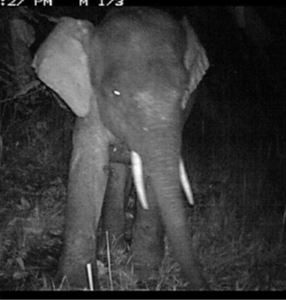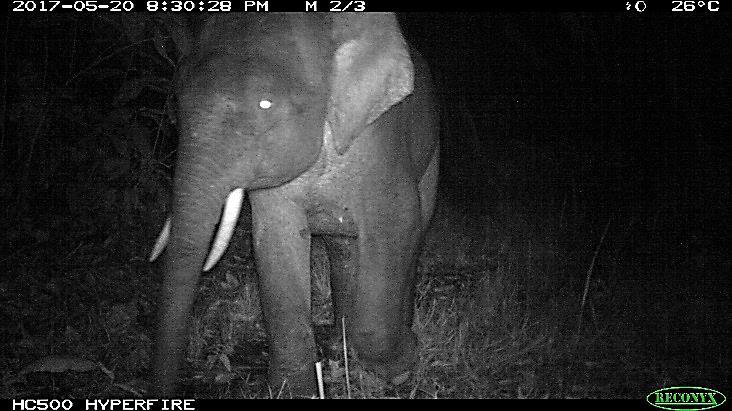Contact
Department of Wildlife, Fish and Environmental Studies

Degraded rainforests in Borneo has some areas that has been successfully rehabilitated for example the INIKEA restoration project, lead by SLU*, IKEA and Sabah Foundation. In a pilot project SLU researcher Navinder Singh and his MSc student Laia Crespo Mingueza are getting information about elephants and the other biodiversity of the INIKEA area which has never been systematically recorded before.
Borneo is a large island in the tropical Southeast Asia. The rainforests of Borneo provide a variety of ecosystem services to the local as well as global human population. Today more than half of the rain forests have disappeared due to logging as well as conversion of forests into oil palm plantations to satisfy global demands of palm oil. Consequently, Borneo is undergoing a critical biodiversity crisis which also threatens the endemic Bornean elephant (aka pygmy elephant). This large scale land use change is also intensifying human wildlife conflicts (especially with elephants) resulting in loss of human lives, property, crops, economy and ecosystem services. Over the last two decades, the INIKEA restoration project lead by SLU has been engaged in restoring a large tract of degraded area in the south eastern part of Sabah. The project has been highly successful both for the restoration of rain forests as well as engaging local people in responsibly managing this conservation area. The size of the protected area is 18 500 ha of which about 13 000 ha has been under some form of restoration treatment. Because it is now one of few larger remaining forests in a landscape dominated by oil palm and other industrial plantations it was recently given Malaysia’s highest protection status. However, animal biodiversity in this forest reserve has not been studied before. A pilot project was initiated in March 2017 to establish the status of Bornean elephants as well as other mammals in the INIKEA restoration project area. Specifically, the aims of this pilot project were to monitor the presence and activity of Borneo elephants in the area as well as evaluate the potential role of this reforested area for the conservation and management of the Borneo elephant in a larger landscape context.
Surveys were conducted from March to June with the use Camera traps and line Transects. Elephants were recorded in two out of the 24 camera stations and signs were recorded at many other sites during the transect surveys. Other regionally and globally important mammal species were also recorded in the survey area which include: Sun bear (Helarctos malayanus), Malaysian porcupine (Histrix brachyura), Sambar deer (Rusa unicolor), Silvered langur (Trachypithecus cristatus), muntjac (Muntiacus sp), mouse deer (Tragulus sp), bearded pig (Sus barbatus), pig-tail macaque (Macaca nemestrina) and long-tail macaque (Macaca fascicularis).

Photos: Individual with two long thin tusks. Young male, smaller in size than the others. Pictures captured from one of the stations.
The preliminary results of this pilot project indicate that the elephants observed in the INIKEA restoration area often used main roads for travelling as well as for feeding. The area is also potentially a migratory route as well as a refuge for herds that move and reside in this highly modified landscape mosaic dominated by oil palm.
This study indicates that the INIKEA restoration site is clearly supporting a variety of mammals which are locally and globally important and suggests that this area may be a vital refuge for such species within an oil palm dominated landscape. This calls for urgent research in identifying the potential role of such restoration activities in biodiversity conservation, preservation of ecosystem services and minimizing human wildlife conflicts.
Interested to know more, please contact Associate Professor Navinder Singh; Navinder.Singh@slu.se
*The Elephant project was funded by the SLU Global theme: Restoration of degraded rural landscapes, while the main restoration project is funded by IKEA and the Kamprad Family Foundation.